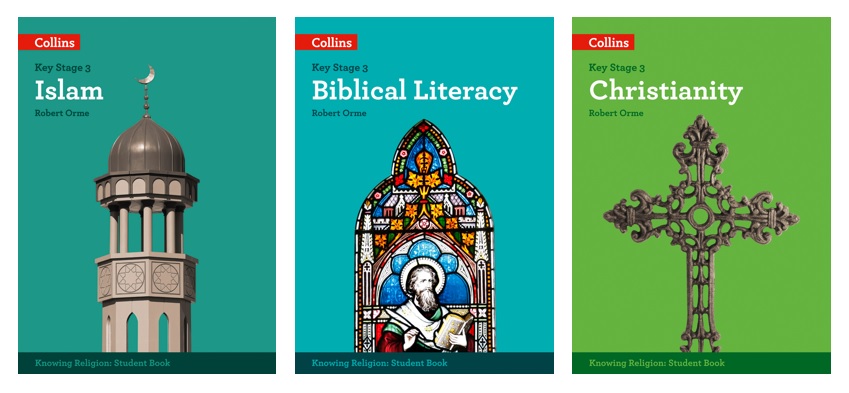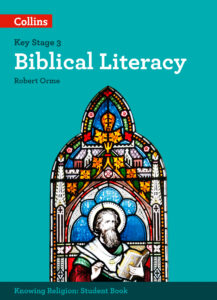Knowing Religion is a new series of nine Key Stage 3 RE textbooks out this month. In this blog, we discuss the books with Series Editor and author of Islam, Christianity and Biblical Literacy, Robert Orme.

Towards the end of my first year of teaching, as my Year 11 class approached their GCSE exam, one student raised a hand and asked “Sir, if Jesus was Jewish, why are his followers Christians?” Over the next couple of years, I heard this kind of question repeated again and again in different guises. “Did Moses get the Ten Commandments in the Old or New Testament?”, “Who are the Israelites?”, “Who are Abraham and David?”, “Aren’t Christians hypocrites if they don’t follow parts of the Old Testament?”
These questions revealed a lack of knowledge about the biblical stories and teachings which underpin Christian history, belief and practice and permeate Western civilisation. Pupils could recite an arbitrary array of quotes by Paul about gender attitudes, but had little, if any, idea who we was, or what relationship he has to anything else in the Bible.

In order to address this lack of biblical knowledge, I wrote a textbook titled ‘Biblical Literacy’ published by Collins this month as part of the Knowing Religion series. Using selected biblical stories and texts, Biblical Literacy tells the story of the Christian Bible in a memorable and engaging way. The book provides pupils with a narrative with which to coherently understand the Old Testament, Jesus’s life and teachings and Christianity’s beginnings. This enables them to situate new information learnt within a clear and coherent narrative framework opposed to simply learning isolated, decontextualized chunks of biblical text.
As Jonathan Porter discusses here, ideally pupils would already possess a strong knowledge of the Bible, but this is usually highly variable. Porter likens this knowledge in RE to the foundational knowledge of times tables needed to do more complex mathematics. Without this knowledge, pupils will have little chance of making sense of Christianity in later years.
The new GCSE RS and A Level specifications have significantly heightened the need for pupils studying Christianity to acquire a solid biblical understanding lower down the school. No longer can pupils simply rely on a fragmented, bitesize knowledge of the Bible expressed in a handful of quotes like “love your neighbour.” In order for pupils to write informed critical responses to complex theological issues found in the new specifications, there is a need for more sophisticated understanding. I hope that Biblical Literacy can help pupils at Key Stage 3 gain the necessary grounding for this new challenge at GCSE.
Take a closer look at Knowing Religion here: https://collins.co.uk/page/knowingreligion

Robert Orme



